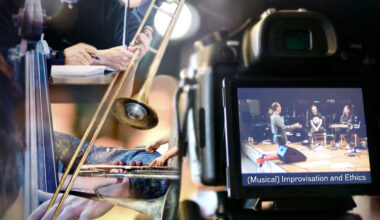Luciano Chessa is a composer, conductor, audiovisual and performance artist, music historian. Chessa’s compositions include A Heavenly Act, an opera commissioned by the San Francisco Museum of Modern Art, with original video by Kalup Linzy; Cromlech, a large organ piece he wrote for Melbourne’s Town Hall Organ; and the opera Cena oltranzista nel castelletto al lago, a work merging experimental theater with reality TV which required from the cast over 55 hours of fasting. Chessa has been commissioned multiple times by the Performa Biennial, and in 2014 he presented three events at the Solomon R. Guggenheim Museum as part of the exhibition Italian Futurism, 1909-1944: Reconstructing the Universe. Chessa’s work appeared more than once in Artforum, Flash Art, Art in America, and Frieze; and has been featured in the Italian issue of Marie Claire and in the September Issue of Vogue Italia.
FACTS
1. I love French chocolate. Jacques Genin, Patrick Roger and La Maison du Chocolat, all are faves of mine. Of course these are not the only one I like, but all are damn good.
2. How do you make people laugh? Humor is absolutely not universal, though some basics I believe that can translate. Why have I been concerned about this? Well, it’s because I am (finally, after 25 years of thinking about it!) setting Stendhal’s Les Privilèges. Thing is: I find this little gem to be funny as hell. One of the funniest texts I have ever encountered. Yet I begin to fear that others may not find it funny, like, at all. This, if you pause for a sec and ponder upon, is a very sad scenario. Have you ever told a joke and got no response, or cold stares? I mean, who wants that? So I am working overtime to make sure that my musical treatment contributes to tell this mid-1800 joke in the best possible fashion. I have to keep it as short as I can possibly manage… Oh, one thing: I’m setting the text in the original French!
3. On that “Lost in translation” note: how do y’all feel if I sing in Italian? I love writing songs, but… Italian isn’t universal either. Well, which language is? Actually, ages ago I studied in Bologna with Umberto Eco, and the course was titled “The Search for the Perfect Language”. For a full year we investigated that question (for the one of you who are curious about this subject, our course materials became a book that Eco published in the mid-1990s, so you can read them!). Eco defined the “perfect” language as “the one which can be understood by all people on Earth”. A myth, obviously.
So back to my question: when I mention I write songs in Italian, many ppl immediately say “oh, that’s beautiful” even if they understand no Italian. Now, what does that mean? I suppose it means that even if you don’t understand the words, you still get a general vibe from a performance, and of course words have timbre! Still, in a perfect universe, all interested listeners would take the time to translate (and creatively mistranslate!) my lyrics, and hopefully find out that indeed what I wrote is “beautiful”. After all, growing up I did just that with Wagner or Mussorgsky’s operas, or US/UK pop and rock records. Spending some time trying to understand what the hell someone talking to us is saying, that’s very valuable! This goes beyond the “oh, what a beautiful sound or feeling”. So well, how then y’all feel if I say that my next record of songs is all going to be in the dialect of my hometown, Sassarese?
QUESTIONS
1. What is the biggest inspiration for your music?
The memory of other people casually singing while attending their daily vocations.
2. How and when did you get into making music?
In a packed burgundy Peugeot 304, returning home from Stintino after a day at the beach. I remember announcing to my mom, dad, brother and sister the following: “I believe I have written a song”. We were passing Fiume Santo. I must have been 7 years old, so it was 1978. We used to sing to each other during longer car trips. It was hot. My mom was intrigued. My father pressed: “Sing it to us, then”. The melody collapsed and melted as I tried to render it. I vaguely remember that the words had to do with turtledoves.
3. What are 5 of your favourite albums of all time?
Lucio Battisti: l’Apparenza; Galina Ustvolskaya: Piano Sonatas (Oleg Malov); Pink Floyd: The Piper at the Gates of Down; Tenore e Cuncordu de Orosei: Voches de Sardinia; Philippe Katerine: Les Créatures; Frank Ocean: Blonde; Aretha Franklin: Amazing Grace (The Complete Recordings); H.M.S. Donovan; Fausto Romitelli: An Index of Metals… Ooops how did I get to 10 so quickly?
4. What do you associate with Berlin?
Felix Mendelssohn’s Grave
5. What’s your favourite place in your town?
Viktoria-Luise Platz
6. If there was no music in the world, what would you do instead?
Read intricate novels
7. What was the last record/music you bought?
Loredana Bertè: Un pettirosso da combattimento
8. Who would you most like to collaborate with?
Philippe Katerine
9. What was your best gig (as performer or spectator)?
The Orchestra of Futurist Noise Intoners @ RadialSystem for Berlin’s Maerzmusik in 2011: a match made in heaven!
10. How important is technology to your creative process?
It plays no role.
11. Do you have siblings and how do they feel about your career/art?
I have a brother who is a computer scientist and a sister who’s an art historian: they are both supportive!


